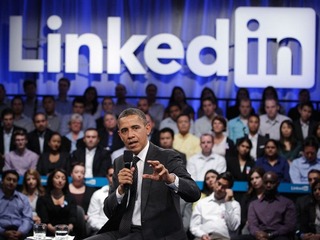Midi Health, a virtual care clinic for women's health, raises $60M
Midi is currently on track to serve about 100,000 patients this year, up from about 30,000 in 2023
Read more...
With the start of the Republican National Convention on Monday, I was lamenting just today how polarized this country seems to have become, compared to the way it used to be. I grew up during the Clinton years, and I thought that was bad. What we have now is even worse.
Not only that, but politics seems to have pervaded everything, from the food we eat to the movies we see. Everything is tribal, and it's exhausting.
One place that politics does not come into play, though, is investing, according to data out from PitchBook. Despite the tech world's overwhemling propensity toward the Democratic Party, and their near universal dislike of Donald Trump, an investor is going to take a good deal, no matter where it comes from.
Breaking it down between private equity deals in red states (where they vote Republican) and The United States as a whole, PitchBook found very little difference between the two,
For example, while B2B companies have made up 36.8 percent of all PE deals in the U.S. since November 2012, they also make up 37.9 percent of deals in stateswhere Mitt Romney won in 2012. In B2C, its 18.8 percent overall, and 15.8 percent in red states.
The numbers are pretty close in all sectors; in fact, there's only one where there's a big difference: energy deals. In that case, energy make up 7.6 percent of all PE deals in the entire U.S., but they make up nearly double, 14.5 percent, of deals in red states.
There's a good reason for that: honestly, what state do you automatically thing of when you think of energy? Texas, of course, because of oil. That state has 61.9 of the red-state energy deals, while only one other state, Oklahoma, has more than 10 percent, with 11.3 percent of energy deals.
Texas, meanwhile, also leads all red states in PE deals, by a mile. With over a third of all deas, 34.32 percent, it had more than triple that of second biggest state, which is Georgia, with 10.86 percent of deals.
Only three other red states had more than 5 percent of deals: North Carolina, with 7.97 percent; Tennessee, with 5.67 percent; and Arizona, with 5.18 percent.

Silicon Valley politics
The tech world, overall, tends to go blue. In 2012, for example, a total of 3,299 Silicon Valley employees gave $2,462,038 to Barack Obama, while only 528 Silicon Valley employees gave Mitt Romney a total of $357,438. That's 572 percent more that went to Obama.
2016 has really shown the disconnect between one of America's largest industries, and one of its major political parties, as numerous tech leaders have denounced, or gotten into fights with, Republican nominee Donald Trump.
That included a letter, signed by such leaders as Aaron Levie, Vinod Khosla and Alexis Ohanian, which called Trump, "a disaster for innovation."
It would make sense for the majority of the deals in technology to be done in blue states either way, though, given that California, New York, Illinois and Massachusetts, home of fives of the biggest tech hubs in the country, all reliably go Democratic.
(Image source: mentalfloss.com)
Midi is currently on track to serve about 100,000 patients this year, up from about 30,000 in 2023
Read more...Wheel clinicians will be able to prescribe Owlet's BabySat, which monitors oxygen and heart rate
Read more...Amish Jani, Founder and Partner at FirstMark, joined the company's Board of Directors
Read more...